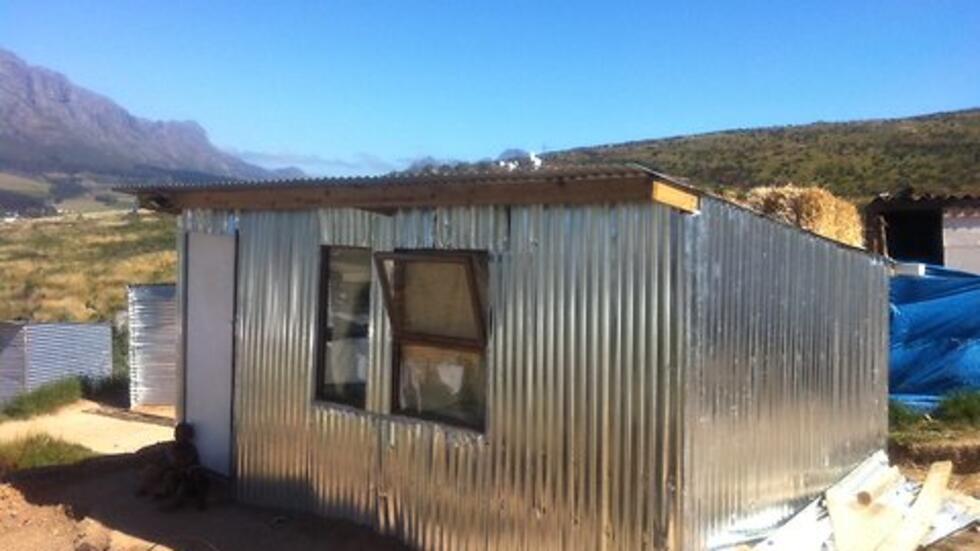South Africa's i-Shack gives power to the people
The South African government boasts that it has built 2.8 million new homes in 18 years, each with access to electricity, water and drains, but 14% of the population still lives in huts and shacks with no basic facilities. That’s where the i-Shack comes in. Alex Duval Smith reports for RFI.
Issued on: Modified:
Play - 04:04

The howling wind of the Western Cape sweeps across Enkanini, an informal settlement in the industrial area serving Stellenbosch near Cape Town.

4000 people live here in shacks that cling on to a hillside above the vineyards.
A group of Cape Town academics has devised the i-Shack or Improved Shack, in an attempt to improve life in such communities. It features insulation, ventilation systems and solar power.
“We are installing the second generation of solar systems which is the solar-fed TV, DVD player microgrid. It has 4 lights, 12 side spotlights, a fridge, a TV, a DVD player and a cell phone charger” says Berry Wessels, a researcher in sustainability at Stellenbosch University.
Wessels and his team are kitting out the shack of Victor Mthalo, a 28-year-old painter. He lives here with his girlfriend Lungwisa who works as a fruit picker. They have two children.
A year ago, Mthalo became part of the i-Shack experiment.
“I have been here since 2011, May. There was no more space for me in my sister's house”, says Victor. “We built the shack in one day but it's not completely done, you're always fixing things”.

He and Lungwisa were given a solar panel, fitted to a light and a cell phone charger.
The insides of their zinc walls and ceiling were insulated with used fruit juice cartons and cardboard to reduce the summer temperature and make the shack two degrees warmer in winter.
“We have 3 models of i-shack: the first comes with 2 lights, cell phone charger”, Berry explains. “The 2nd with a radio as well, and the 3rd, which we are seeing here, adds a fridge, a TV and a DVD player. The first has a baseline price of 80-120R per month, the 3rd about 220R. That money will go to a local operator - a local entrepreneur who will look after maintenance.”
The researchers' figures, from 80 to 220 Rands - or 7 euro to 20 euro - are based not on the actual cost of the i-Shack but on the money available to Enkanini's residents.

Wessels believes that people like Mthalo will be the last to be included in municipal plans for water, drains and electrification. They need to become self-sufficient.
“This is an illegally settled community,” says Berry Wessels, “4000 people with 80 toilets and fewer taps. It’s hectic conditions. What we're doing provides a solution by generating power yourself and trying to keep the money within the community”.
Engineering consultant Fleurus Coetzee explains what he is up to:
“The solar panels must be connected to battery and this is the controller box. Now I am trying to get the radio working”.
Victor Mthalo has yet to become accustomed to his new fridge, and it's unlikely that he and Lungiswa will regularly have enough money to buy food and drinks in such quantities that they need to be kept cool before being consumed.
The i-Shack does not provide power for cooking, nor of course water and sanitation.
However, Victor Mthalo says that even in the past year, having a solar-powered charger for his cell phone has been a great help.
“Before I received solar, I would charge at my sister's house. I would have to go to her place for 3 or 4 hours. It's nice to spend time doing other things.”
The project has just received a quarter of a million dollars from the Bill and Melinda Gates Foundation but it is about more than solar power.
It marks the start of a unique cooperative effort between academics and shack dwellers which ought to be beneficial for both.
Daily newsletterReceive essential international news every morning
Subscribe